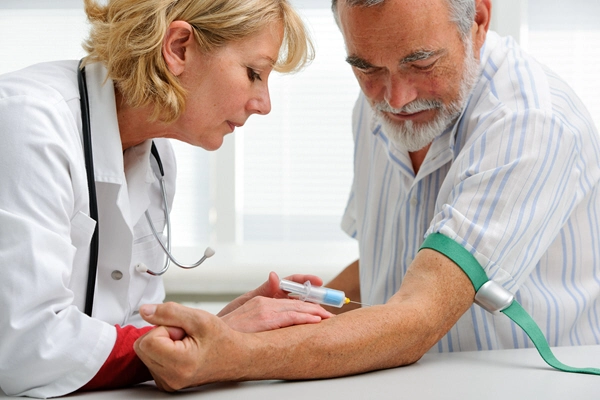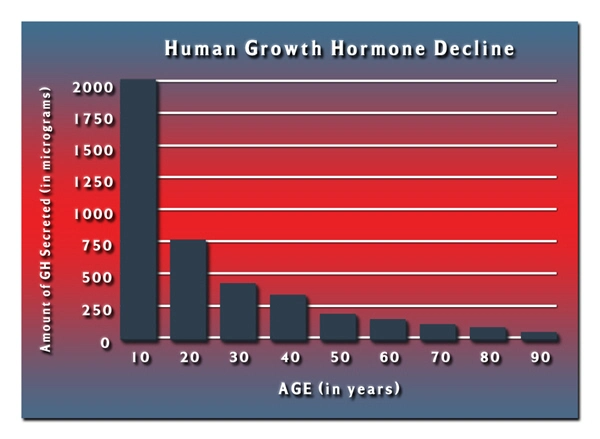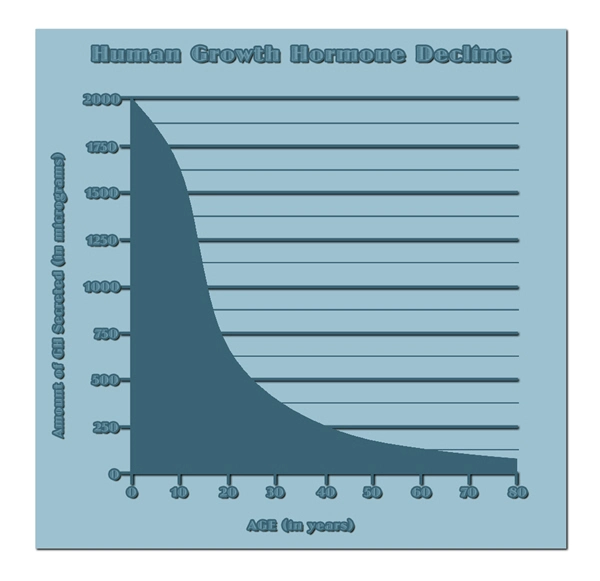Introduction
Prostate health is a critical concern for American males, with conditions such as benign prostatic hyperplasia (BPH) and prostate cancer affecting a significant portion of the population. As men age, the prevalence of these conditions increases, prompting a search for effective preventive and therapeutic strategies. Nutritional supplements have emerged as a popular option, with claims of supporting prostate health. This article reviews the evidence from clinical trials and observational studies to evaluate the impact of various nutritional supplements on prostate health in American males.
Overview of Prostate Health Concerns
Prostate health is paramount for American men, as issues such as BPH and prostate cancer can severely impact quality of life. BPH, characterized by an enlarged prostate, affects approximately 50% of men between the ages of 51 and 60 and up to 90% of men over the age of 80. Prostate cancer is the second most common cancer among American men, with about one in nine men diagnosed during their lifetime. Given these statistics, the quest for effective interventions is crucial.
Common Nutritional Supplements and Their Proposed Benefits
Several nutritional supplements are touted for their potential benefits on prostate health. These include:
- **Selenium**: Often linked to a reduced risk of prostate cancer due to its antioxidant properties.
- **Vitamin E**: Suggested to protect prostate cells from oxidative damage.
- **Lycopene**: A carotenoid found in tomatoes, believed to reduce the risk of prostate cancer.
- **Saw Palmetto**: Commonly used for alleviating symptoms of BPH.
- **Zinc**: Essential for prostate function and often recommended for maintaining prostate health.
Clinical Trials and Observational Studies: A Review
A systematic review of clinical trials and observational studies provides insight into the efficacy of these supplements.
- **Selenium and Vitamin E**: The Selenium and Vitamin E Cancer Prevention Trial (SELECT) was a large-scale study that aimed to assess the effectiveness of these supplements in preventing prostate cancer. The trial concluded that neither selenium nor vitamin E, alone or in combination, reduced the incidence of prostate cancer. In fact, vitamin E supplementation was associated with a slightly increased risk of prostate cancer.
- **Lycopene**: Observational studies have shown mixed results regarding lycopene's impact on prostate cancer risk. Some studies suggest a protective effect, particularly in advanced stages of the disease, while others find no significant association. A meta-analysis of randomized controlled trials found no significant reduction in prostate cancer risk with lycopene supplementation.
- **Saw Palmetto**: Numerous studies have examined the efficacy of saw palmetto in treating BPH symptoms. While some smaller trials reported improvements in urinary symptoms, larger and more rigorous studies, such as the Complementary and Alternative Medicine for Urological Symptoms (CAMUS) trial, found no significant benefit over placebo.
- **Zinc**: Observational data suggest that zinc levels in the prostate are higher than in other soft tissues, and deficiencies may be linked to prostate disease. However, clinical trials investigating zinc supplementation for prostate health have been limited and inconclusive.
Discussion and Recommendations
The evidence from clinical trials and observational studies suggests that the impact of nutritional supplements on prostate health is limited and often inconsistent. While some supplements like saw palmetto may offer symptomatic relief for BPH, the overall efficacy remains uncertain. Selenium and vitamin E, once thought to be protective, have not demonstrated significant benefits and may even pose risks.
American males seeking to support prostate health should focus on a balanced diet rich in fruits, vegetables, and whole grains, alongside regular exercise and routine medical check-ups. For those considering supplements, it is crucial to consult with healthcare providers to weigh the potential benefits against the risks and to consider the most current research findings.
Conclusion
In conclusion, while nutritional supplements are widely marketed for prostate health, the scientific evidence supporting their use is not robust. American males should approach supplementation with caution and prioritize established lifestyle interventions to maintain prostate health. Continued research is essential to better understand the role of nutrition in preventing and managing prostate conditions.

- Prostate Health in Aging Men: Understanding Changes and Management Strategies [Last Updated On: March 8th, 2025] [Originally Added On: March 8th, 2025]
- Prostate Cancer Survivorship: Managing Health and Well-being Post-Treatment [Last Updated On: March 16th, 2025] [Originally Added On: March 16th, 2025]
- Prostate Cancer's Psychological Impact and Holistic Care Strategies for American Men [Last Updated On: March 17th, 2025] [Originally Added On: March 17th, 2025]
- Optimal Exercise Practices for Enhancing Prostate Health in American Men [Last Updated On: March 17th, 2025] [Originally Added On: March 17th, 2025]
- Prostate Cancer Screening: Navigating Controversies and Making Informed Decisions [Last Updated On: March 18th, 2025] [Originally Added On: March 18th, 2025]
- Prostate Health: Understanding Family History and Genetic Risks for American Men [Last Updated On: March 18th, 2025] [Originally Added On: March 18th, 2025]
- Understanding BPH: Prevalence, Symptoms, Diagnosis, and Management in American Men [Last Updated On: March 18th, 2025] [Originally Added On: March 18th, 2025]
- Prostate Health: Understanding Symptoms, Screening, and Lifestyle Impact on American Men [Last Updated On: March 18th, 2025] [Originally Added On: March 18th, 2025]
- Prostate Cancer Treatments: Side Effects and Management Strategies for American Men [Last Updated On: March 20th, 2025] [Originally Added On: March 20th, 2025]
- Prostate Health: Understanding Risks and Enhancing Wellness in American Men [Last Updated On: March 20th, 2025] [Originally Added On: March 20th, 2025]
- Dietary Strategies for Enhancing Prostate Health in American Men [Last Updated On: March 20th, 2025] [Originally Added On: March 20th, 2025]
- Prostate Health and Cardiovascular Disease: Shared Risks and Integrated Care Strategies [Last Updated On: March 20th, 2025] [Originally Added On: March 20th, 2025]
- Stress Impact on Prostate Health: Management Strategies for American Men [Last Updated On: March 21st, 2025] [Originally Added On: March 21st, 2025]
- Prostate Cancer's Impact on Fertility: Treatment Effects and Preservation Options [Last Updated On: March 22nd, 2025] [Originally Added On: March 22nd, 2025]
- Prostate Health: Benefits and Types of Exercise for American Men [Last Updated On: March 22nd, 2025] [Originally Added On: March 22nd, 2025]
- Prostate Cancer and Radiation Therapy: Benefits, Advances, and Considerations for American Males [Last Updated On: March 22nd, 2025] [Originally Added On: March 22nd, 2025]
- Active Surveillance: A Key Strategy for Managing Low-Risk Prostate Cancer in American Men [Last Updated On: March 22nd, 2025] [Originally Added On: March 22nd, 2025]
- Prostate Health: Foods to Avoid for Prevention of Cancer and BPH [Last Updated On: March 23rd, 2025] [Originally Added On: March 23rd, 2025]
- Sleep Quality's Impact on Prostate Health: Hormones and Practical Sleep Tips [Last Updated On: March 24th, 2025] [Originally Added On: March 24th, 2025]
- Targeted Therapy for Prostate Cancer: Insights for American Men's Health [Last Updated On: March 24th, 2025] [Originally Added On: March 24th, 2025]
- Hormone Therapy in Prostate Cancer: Benefits, Challenges, and Future for American Men [Last Updated On: March 24th, 2025] [Originally Added On: March 24th, 2025]
- Chemotherapy's Role and Impact on Prostate Cancer in American Men [Last Updated On: March 24th, 2025] [Originally Added On: March 24th, 2025]
- Prostate Cancer and Cryotherapy: A Minimally Invasive Treatment Option for American Men [Last Updated On: March 25th, 2025] [Originally Added On: March 25th, 2025]
- Antioxidants and Prostate Health: Diet, Supplements, and Lifestyle for American Males [Last Updated On: March 25th, 2025] [Originally Added On: March 25th, 2025]
- Selenium's Role in Enhancing Prostate Health: Benefits and Dietary Sources [Last Updated On: March 25th, 2025] [Originally Added On: March 25th, 2025]
- Green Tea Benefits for Prostate Health in American Males [Last Updated On: March 25th, 2025] [Originally Added On: March 25th, 2025]
- Prostate and Bone Health: Critical Links and Management Strategies for American Males [Last Updated On: March 25th, 2025] [Originally Added On: March 25th, 2025]
- Vitamin D's Crucial Role in Prostate Health for American Males [Last Updated On: March 25th, 2025] [Originally Added On: March 25th, 2025]
- HIFU: A Promising Non-Surgical Option for Prostate Cancer Treatment [Last Updated On: March 25th, 2025] [Originally Added On: March 25th, 2025]
- Alcohol Consumption's Impact on Prostate Health: Risks and Benefits for American Men [Last Updated On: March 25th, 2025] [Originally Added On: March 25th, 2025]
- Hydration's Crucial Role in Maintaining Prostate Health for American Males [Last Updated On: March 25th, 2025] [Originally Added On: March 25th, 2025]
- Brachytherapy: Targeted Prostate Cancer Treatment Options and Considerations [Last Updated On: March 26th, 2025] [Originally Added On: March 26th, 2025]
- Heavy Metals' Impact on Prostate Health: Risks, Mechanisms, and Prevention Strategies [Last Updated On: March 26th, 2025] [Originally Added On: March 26th, 2025]
- Zinc's Crucial Role in Prostate Health for American Males [Last Updated On: March 26th, 2025] [Originally Added On: March 26th, 2025]
- Photodynamic Therapy: A Promising, Less Invasive Treatment for Prostate Cancer in American Men [Last Updated On: March 26th, 2025] [Originally Added On: March 26th, 2025]
- Omega-3 Fatty Acids: Enhancing Prostate Health in American Males [Last Updated On: March 26th, 2025] [Originally Added On: March 26th, 2025]
- Prostate Cancer: Stages, Grades, and Treatment Options for American Men [Last Updated On: March 26th, 2025] [Originally Added On: March 26th, 2025]
- Immunotherapy: A New Hope for Prostate Cancer Treatment in American Men [Last Updated On: March 26th, 2025] [Originally Added On: March 26th, 2025]
- Environmental Factors and Prostate Health: Risks and Preventive Measures for American Males [Last Updated On: March 27th, 2025] [Originally Added On: March 27th, 2025]
- Air Pollution's Impact on Prostate Health: Risks and Protective Measures for American Men [Last Updated On: March 27th, 2025] [Originally Added On: March 27th, 2025]
- Prostate Cancer Support Groups: Emotional Aid and Empowerment for American Men [Last Updated On: March 27th, 2025] [Originally Added On: March 27th, 2025]
- Prostate Cancer Management: Understanding Watchful Waiting and Its Implications [Last Updated On: March 27th, 2025] [Originally Added On: March 27th, 2025]
- Proton Therapy: A Targeted Approach to Treating Prostate Cancer in American Men [Last Updated On: March 27th, 2025] [Originally Added On: March 27th, 2025]
- Pesticides and Prostate Health: Risks, Mechanisms, and Preventive Measures for American Males [Last Updated On: March 27th, 2025] [Originally Added On: March 27th, 2025]
- Lycopene's Role in Enhancing Prostate Health: Prevention and Management Strategies [Last Updated On: March 27th, 2025] [Originally Added On: March 27th, 2025]
- Chemoprevention Strategies for Prostate Cancer Prevention in American Men [Last Updated On: March 27th, 2025] [Originally Added On: March 27th, 2025]
- Plastics and Prostate Health: Risks, Research, and Reduction Strategies for American Males [Last Updated On: March 28th, 2025] [Originally Added On: March 28th, 2025]
- Chronic Inflammation's Impact on Prostate Health in American Males: Prevention and Management [Last Updated On: March 28th, 2025] [Originally Added On: March 28th, 2025]
- Palliative Care's Vital Role in Enhancing Prostate Cancer Patients' Quality of Life [Last Updated On: March 28th, 2025] [Originally Added On: March 28th, 2025]
- CyberKnife Radiosurgery: Precision Treatment for Prostate Cancer in American Men [Last Updated On: March 29th, 2025] [Originally Added On: March 29th, 2025]
- Vitamin E's Role in Prostate Health: Benefits and Dietary Sources [Last Updated On: March 29th, 2025] [Originally Added On: March 29th, 2025]
- Prostate Cancer Surgery: Benefits, Risks, and Choosing the Right Approach [Last Updated On: March 30th, 2025] [Originally Added On: March 30th, 2025]
- EMFs and Prostate Health: Risks, Mechanisms, and Mitigation Strategies for American Males [Last Updated On: March 31st, 2025] [Originally Added On: March 31st, 2025]
- Robotic Surgery for Prostate Cancer: Benefits, Procedure, and Recovery Insights [Last Updated On: March 31st, 2025] [Originally Added On: March 31st, 2025]
- Prostate Cancer and Focal Therapy: A Targeted Approach for American Men [Last Updated On: April 2nd, 2025] [Originally Added On: April 2nd, 2025]
- Cruciferous Vegetables: Enhancing Prostate Health in American Males [Last Updated On: April 2nd, 2025] [Originally Added On: April 2nd, 2025]
- Endocrine Disruptors and Prostate Health: Risks, Exposure, and Mitigation Strategies [Last Updated On: April 6th, 2025] [Originally Added On: April 6th, 2025]
- Laparoscopic Surgery for Prostate Cancer: Benefits, Procedure, and Recovery for American Men [Last Updated On: April 8th, 2025] [Originally Added On: April 8th, 2025]
- Industrial Chemicals and Prostate Health: Risks and Mitigation for American Males [Last Updated On: April 8th, 2025] [Originally Added On: April 8th, 2025]
- Prostate Cancer Management: The Role and Future of Neoadjuvant Therapy [Last Updated On: April 9th, 2025] [Originally Added On: April 9th, 2025]
- Palliative Surgery for Prostate Cancer: Enhancing Quality of Life for American Men [Last Updated On: April 9th, 2025] [Originally Added On: April 9th, 2025]
- Soy's Role in Enhancing Prostate Health: Benefits and Dietary Integration [Last Updated On: April 9th, 2025] [Originally Added On: April 9th, 2025]
- Salvage Therapy: A Second Chance for American Men with Recurrent Prostate Cancer [Last Updated On: April 10th, 2025] [Originally Added On: April 10th, 2025]
- Bisphosphonates: Enhancing Bone Health in American Men with Prostate Cancer [Last Updated On: April 11th, 2025] [Originally Added On: April 11th, 2025]
- Pomegranate: A Natural Ally for Prostate Health in American Males [Last Updated On: April 11th, 2025] [Originally Added On: April 11th, 2025]
- Prostate Health: Medications, Risks, and Lifestyle Management for American Males [Last Updated On: April 12th, 2025] [Originally Added On: April 12th, 2025]
- Flaxseed: A Natural Approach to Enhancing Prostate Health in American Males [Last Updated On: April 13th, 2025] [Originally Added On: April 13th, 2025]
- Adjuvant Therapy in Prostate Cancer: Hormonal, Radiation, and Chemotherapy Roles [Last Updated On: April 13th, 2025] [Originally Added On: April 13th, 2025]
- Shift Work's Impact on Prostate Health: Risks and Mitigation Strategies for American Males [Last Updated On: April 15th, 2025] [Originally Added On: April 15th, 2025]
- Radium-223: Targeted Therapy for Metastatic Prostate Cancer in American Men [Last Updated On: April 17th, 2025] [Originally Added On: April 17th, 2025]
- Prostate Health Risks and Strategies for Long-Haul Truckers [Last Updated On: April 18th, 2025] [Originally Added On: April 18th, 2025]
- RANK Ligand Inhibitors: A Promising Treatment for Advanced Prostate Cancer [Last Updated On: April 18th, 2025] [Originally Added On: April 18th, 2025]
- Turmeric's Potential Benefits for Prostate Health in American Males [Last Updated On: April 18th, 2025] [Originally Added On: April 18th, 2025]
- Enzalutamide: Revolutionizing Prostate Cancer Treatment and Enhancing Quality of Life [Last Updated On: April 18th, 2025] [Originally Added On: April 18th, 2025]
- Denosumab's Role in Managing Bone Health for Advanced Prostate Cancer Patients [Last Updated On: April 18th, 2025] [Originally Added On: April 18th, 2025]
- Heavy Physical Work's Impact on Prostate Health: Risks and Mitigation for American Males [Last Updated On: April 19th, 2025] [Originally Added On: April 19th, 2025]
- Ginger's Role in Supporting Prostate Health: Benefits and Dietary Integration [Last Updated On: April 19th, 2025] [Originally Added On: April 19th, 2025]
- Abiraterone: A New Hope in Treating Advanced Prostate Cancer in American Men [Last Updated On: April 19th, 2025] [Originally Added On: April 19th, 2025]
- Prostate Health: Importance of Regular Check-ups for Men Over 50 [Last Updated On: April 21st, 2025] [Originally Added On: April 21st, 2025]
- Tomatoes and Prostate Health: Lycopene's Role in Cancer Prevention [Last Updated On: April 21st, 2025] [Originally Added On: April 21st, 2025]



List of USA state clinics - click a flag below for blood testing clinics.
Word Count: 651



















































